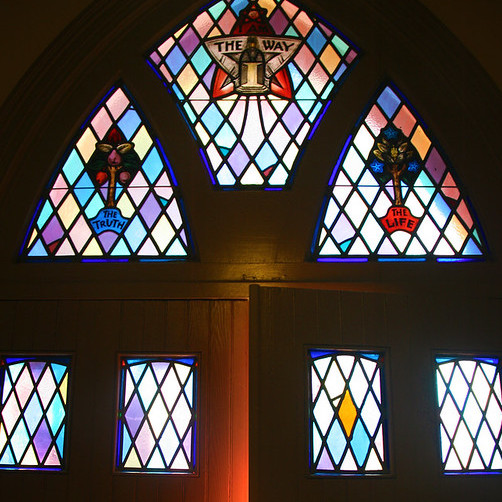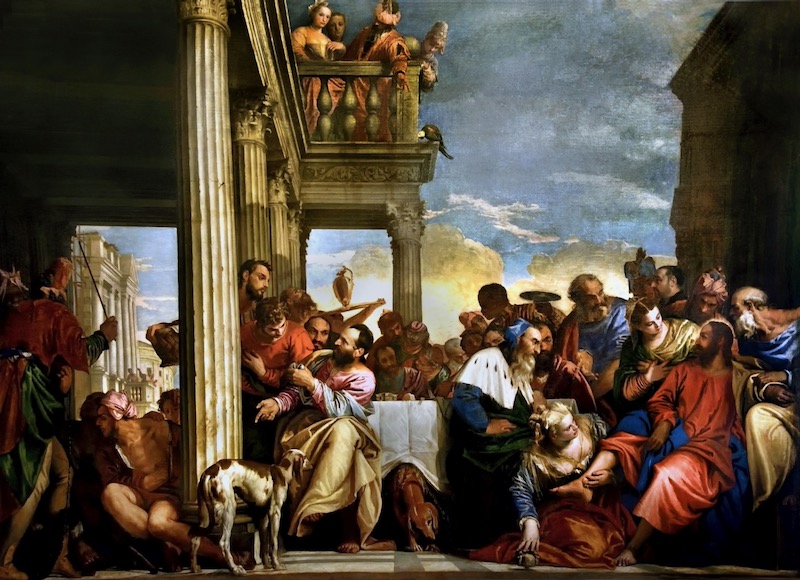To get the point of this powerful parable’s irony, you have to remember that dining protocol for grand occasions in the ancient world was a social minefield. Such occasions in Jesus’ day were usually held outdoors and in public, under the gaze of all and sundry, friends and enemies alike. The very real possibility, therefore, of inadvertently slighting someone’s honour by putting them in the wrong place, was a host’s worst nightmare. Prestige, precedence and hierarchy were the salient seating-plan considerations in such high-powered situations, not who might get on with whom.
But this gospel isn’t ultimately, of course, about the niceties of social etiquette. Nor is it, as is often thought, about humility, not primarily, anyway: though it does, en passant, shed light on that vital virtue.
As in certain other parables, Jesus seems, on the surface, to be condoning if not encouraging disingenuity by suggesting that taking the lowest place at table, in a show of false humility, is the best way to be placed in a higher position, thus enhancing your reputation before those observing the dinner.
But Jesus is deftly employing irony to fire a broadside against the Pharisees (remember his host is a Pharisee) in order to challenge them (and us) to wake up to a greater reality than their (and our) religious self-assuredness. As such, it’s of a piece with this whole section of Luke’s gospel, where Jesus, as he approaches Jerusalem, continues, with ever greater urgency, and at ever-increasing risk to his own safety, to shake them (and us) out of their (our) complacency. He does this most tellingly by openly associating with precisely the people whom they, the Pharisees, and other officially religious persons, shunned.
He invites the indigent to dinner, he touches the untouchable, he calls nobodies and even notorious, public sinners, to follow him; and, here, though he is himself the guest at a Pharisee’s table – the ‘guest from hell’, you might think - he denounces the demeaning deference demanded by the Scribes and the Pharisees.
By these means, he inverts their pious expectations by undermining their publicly religious achievements and subverting their cherished certainties. So it is that here he uses superficial platitudes about table manners to teach profound truths about our relationship with God and among ourselves. He teaches, for instance, that the only recognition and respect that matters, eludes those who demand it.
He teaches that true dignity belongs only to those who hold precious the dignity of all. He teaches that true honour, whether generously conferred by our peers or gratuitously given by God, is, by those who deserve it and are truly worthy of it, always unexpected.
And, though this parable isn’t primarily about the virtue of humility, it reminds us that humility is indispensable in all our doings, private and public. It’s no coincidence that the chapter on humility in the Rule of St Benedict, which is arguably pivotal to the whole Rule, begins with reference to this parable.
The fourth century monk, John Cassian [360-430], goes so far as to say that humility is the foundation for all the other virtues. But, like a smile, humility can’t be feigned. Just as a genuine smile comes from within, so humility is much deeper than external behaviour alone; indeed, it’s not always visible on the surface at all. False humility, on the other hand - and humility’s counterfeits abound - can only be on the surface, because it consists precisely in self-conscious, disingenuous, and ultimately inauthentic behaviour.
Real humility, on the other hand, is an attitude of mind and a disposition of the heart that crucially influences everything we do, and especially our relationships. It enables us to see both ourselves and others as God sees us: with accepting, understanding, grateful and merciful eyes. Indeed, humility is the defining disposition of someone who lives in the real world: the defining disposition, that is, of someone who acknowledges their absolute dependence on God. That’s why the scriptures associate humility with intimacy with God; Moses is said to be the humblest man on earth;1 and yet it’s he who comes face to face with God, we’re told, as with a friend.
St Ignatius of Loyola says in The Spiritual Exercises that humility enables us not just to acknowledge but even to glory in the gifts God has given us, precisely as gifts given to us to be shared. That’s why the genuinely humble person can accept compliments with gratitude rather than faux modesty; always remembering, of course, the sage advice given to a particularly gifted monk by the late Cardinal Hume, when Abbot of Ampleforth: “Enjoy the praise, but don’t inhale.” And, finally, just to illustrate what another Cardinal, St John Henry Newman, once said about humility, namely, that it’s not only the hardest virtue to attain but sometimes the hardest to ascertain: the late Lord Longford once bowled into Hatchard’s and furiously demanded to know why his latest book wasn’t on display in the shop window. The title of the book was Humility.



 Loading ...
Loading ...
What do you think?
You can post as a subscriber user ...
User comments (0)